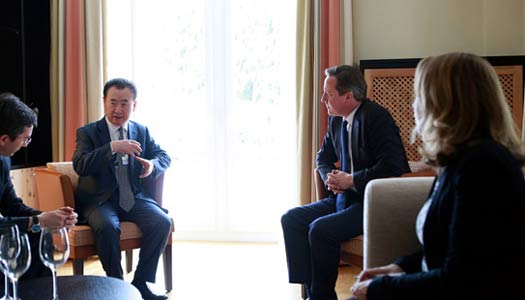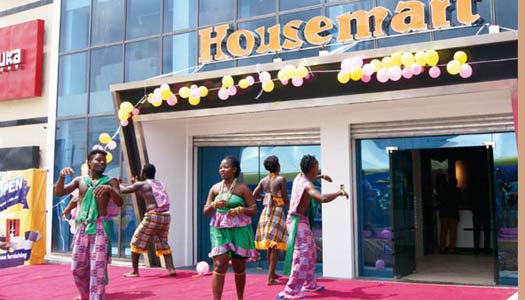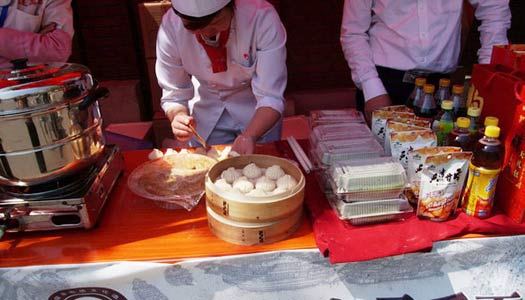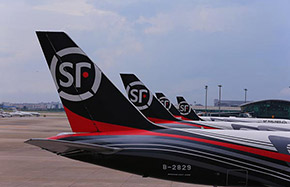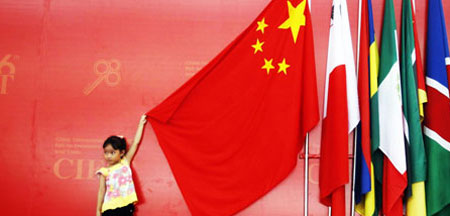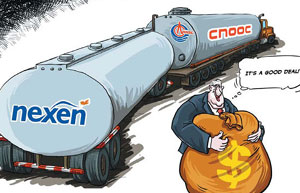Sinomach seeks to invest more abroad
Updated: 2013-04-09 05:47"We expect to add investment abroad in the industrial manufacturing and energy sectors, while we continue to strengthen our presence as a major external engineering contract service provider worldwide," said Xu.
"We are carrying out investigations into some foreign companies from the machine tools and equipment manufacturing industries and we are always prepared to spend on deals that we want."
Sinomach is not a new name worldwide. It has thermal power stations in Indonesia, rail projects in Argentina and power stations in Africa.
Its projects cover 75 nations and regions, and in Africa alone, its business involved more than 20 nations by the end of 2011.
Besides engineering contracts and design, its business stretches to equipment manufacturing and research and development, and foreign trade.

During the 11th Five-Year Plan (2006-10), Sinomach's sales from the contract engineering business jumped by as much as 200 percent.
Against the backdrop of Chinese companies flexing their muscles in going abroad since the financial crisis, Sinomach is quickening its step.
"We are a freshman as an investor", but the company is highly passionate in investing abroad, Xu said.
In 2011, Sinomach acquired the agricultural machinery parts maker McCormick France SAS in a deal worth 8 million euros ($11.19 million) in an attempt to strengthen its dominant position in the domestic high-end tractor market.
In 2012, China CAMC Engineering Co Ltd, a subsidiary of Sinomach, took a 60 percent stake in Vancouver-based Procon Holdings (Alberta) Inc, also a mining contracting and mining service provider, for 737 million yuan ($117 million), which helped Sinomach enter the North American engineering market.
Since the global financial crisis, China's outbound direct investment has been rising, despite a drop in foreign direct investment worldwide, and in 2011 the country became the fifth largest investing nation worldwide in terms of volume.
However, China's "going global" strategy started with bids for contract engineering projects abroad a few decades ago by a slew of State-owned enterprises, led by Sinomach, which built up a variety of infrastructure and facilities including roads, bridges, electricity plants, schools and hospitals.
While Chinese companies became more involved in overseas projects and their names became increasingly recognized in foreign communities, they also started investment projects in recent years, either through setting up factories or conducting mergers and acquisitions.
In 2012, the nation's ODI in the non-financial sector grew 28.6 percent year-on-year to $77.2 billion, according to the Ministry of Commerce.
- BYD exports three electric cars to Thailand
- Grid gets first jolt of residential solar power
- US now largest buyer of China's exports
- China's outbound M&As on the rise
- Tobacco control may entail price, tax rises
- Quanzhou becomes pilot financial reform zone
- New automobiles shine at Geneva Motor Show
- World's longest high-speed rail 'on track'
- Jiugui Liquor involved in plasticizer scandal again
- Accident reignites school bus safety concerns
- China to revise labor law
- Trademark registration under scrutiny
- Dinner ban takes toll on liquor firms
- CIC tables bid for London's Chiswick Park
- Property buyers eye overseas market
- Call for law to protect personal information
- China to cut train ticket prices
- Christmas business
- Solar industry to get jolt from new policies
- KFC chicken under spotlight




